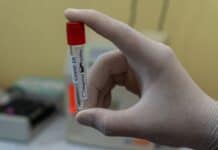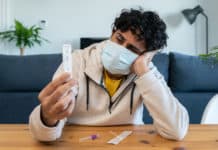
Monkeypox has been in the headlines a lot these days, but does it have the potential to become a COVID-like disruptor, or possibly even a pandemic? The World Health Organization (WHO) is holding an emergency meeting to determine whether this disease’s rapid expansion beyond West and Central Africa, where it is endemic, indicates that this disease may become the latest world health emergency.
Just the name “monkeypox” sounds ominous, suggesting that it’s a combination of an animal-to-human virus jumper like COVID and a deadly disease like smallpox, of which it is a less-lethal relative. The disease has been spotted in at least 47 countries outside its native regions of West and Central Africa, including the U.S. And it appears to continue to spread, including two recent diagnoses in Massachusetts, even among those who have no history of traveling to an area where the disease is endemic.
This unusual and rapid geographic spread triggered the WHO to call for a meeting on June 23 to decide whether this rapid spread means we have another global health emergency on our hands. If WHO decides it is, monkeypox could earn the same designation as was given to the COVID pandemic.
But will monkeypox turn into a COVID=level disaster that could again disrupt the meetings industry along with the rest of the world? There are some mitigating factors that could give meeting professionals some peace of mind, at least for now. According to health experts, monkeypox, while uncomfortable for those who catch it, is highly unlikely to become a COVID-level pandemic, or even something that can be passed human-to-human in a meeting or event environment. The strain that’s being spotted outside its home base generally has a low fatality rate, and as a DNA-based virus, it tends to be much slower to mutate than RNA-based viruses such as HIV and the virus that causes SARS, which makes it less likely to spawn new, more infectious and/or more deadly versions.
Monkeypox also generally requires direct contact with lesions or respiratory droplets for transmission, unlike the COVID virus, which spreads through aerosolized, much smaller particles. And there are already several vaccines and drugs that, while developed to combat smallpox, work well for monkeypox too.
Evolution of the Monkeypox Outbreak
So far, there have been at least 1,500 confirmed cases reported to the World Health Organization (WHO) from 47 countries where the disease is not ordinarily found: the Americas, Europe and the Eastern Mediterranean area, and the Western Pacific region. Fortunately, so far there have been no reported deaths from the outbreak in these regions, though there have been deaths reported from the eight countries in WHO’s African region.
According to WHO, “While epidemiological investigations are ongoing, most reported cases in the newly affected countries have presented through sexual health or other health services in primary or secondary health care facilities with travel history to countries in Europe and North America rather than to countries where the virus is known to be present. In the countries that have long experienced monkeypox, more analysis is needed to understand the ongoing and new sources of infection.”
While the health science experts and epidemiologists continue to monitor the monkeypox situation closely, don’t let the headlines freak you out. The chances that it could be a risk factor at a meeting or event, at least at this point, appear to be so small that you can in good conscience leave it out of your risk management plans for the immediate future.
And the potential for a COVID-level shutdown is equally small so far, at least according to U.S. President Joe Biden.
While Biden told reporters that monkeypox is a “concern in that if it were to spread, it would be consequential,” he also said at a recent news conference, “I just don’t think it rises to the level of the kind of concern that existed with COVID-19, and the smallpox vaccine works for it.”
You May Also Be Interested In
U.S. Drops Testing Mandate for Inbound Travelers
WTTC Proposes Digital Travel Portal
E.U. to Require ETIAS Visa Waiver in 2023










